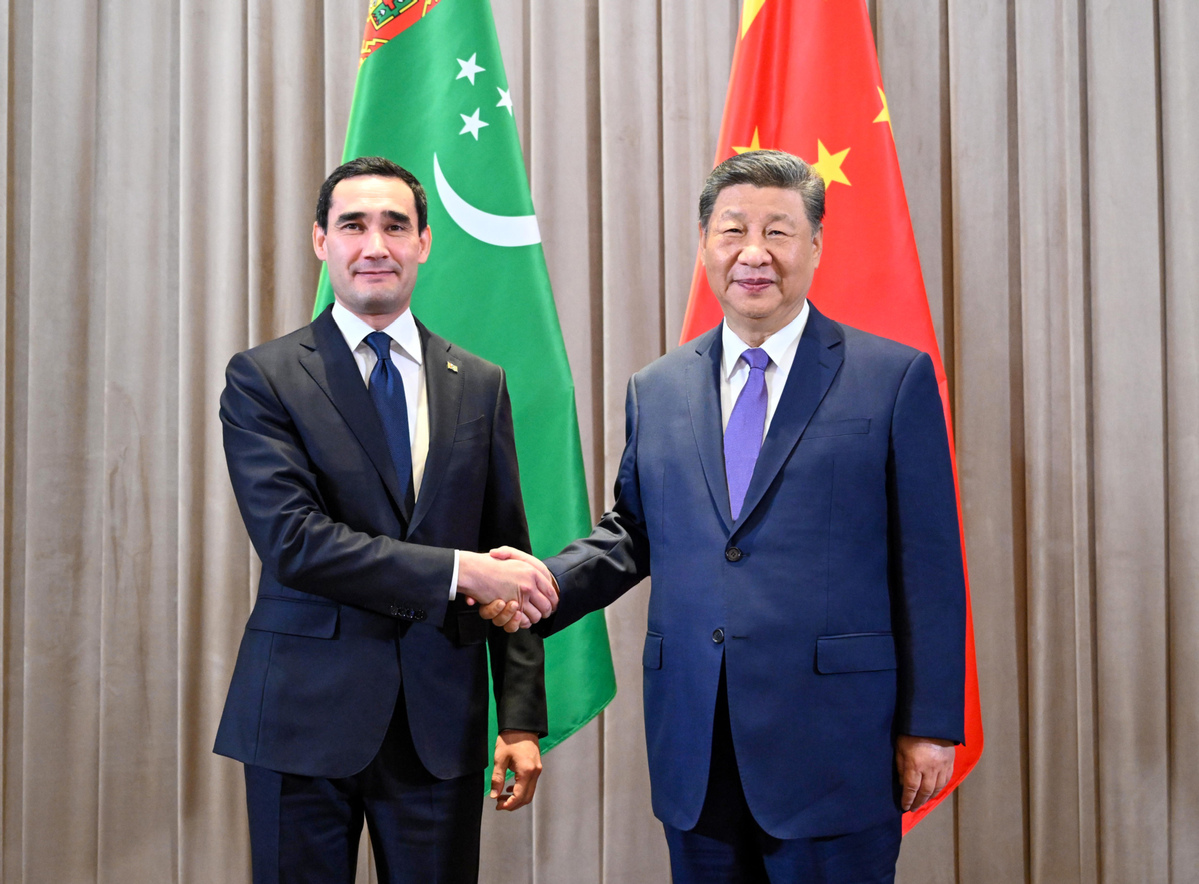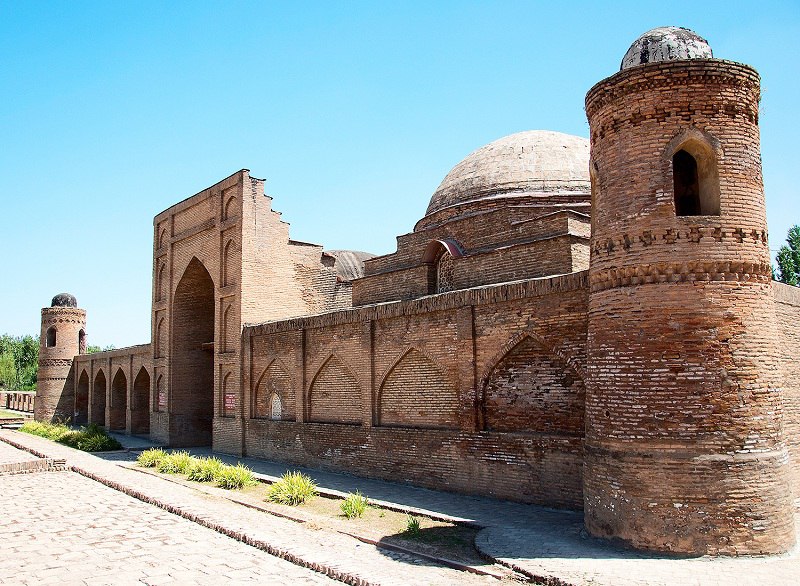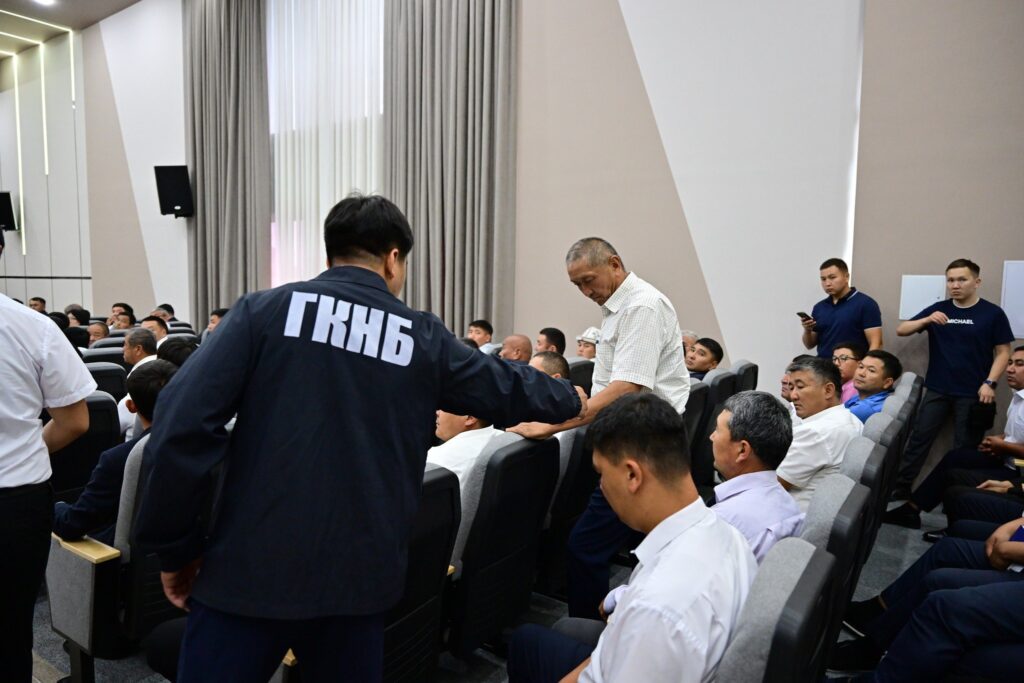Chinese President Xi Jinping’s visit to Astana on June 16, ahead of the Second China-Central Asia Summit, marked a significant milestone in fostering deeper partnerships between China and Central Asia. With all of the region’s nations in attendance, the summit saw agreements signed across sectors such as energy, infrastructure, agriculture, and technology, solidifying China’s growing influence in the strategically vital region. According to Kazinform, China and the Central Asian nations are poised to finalize over 35 memorandums collectively valued at more than $17 billion during the second China-Central Asia Business Council meeting in Astana on June 17.
A Lavish Welcome and Key Agreements

Image: Akorda
Xi Jinping arrived in Astana amid unprecedented pomp and ceremony, including an honor guard, traditional dances, children in national costumes, and an escort of Kazakh Air Force fighter jets. This grand welcome highlighted the importance of the China-Kazakhstan partnership.
During talks with Kazakh President Tokayev, the two leaders oversaw agreements spanning areas such as energy, space, agriculture, intellectual property, tourism, healthcare, science, and the digital economy. Tokayev spoke about Kazakhstan’s plans to build several nuclear power plants, including one with the involvement of China National Nuclear Corporation (CNNC). Characterizing CNNC as a “reliable strategic partner,” he also emphasized Kazakhstan’s role as a supplier of natural uranium and nuclear fuel to China.
“CNNC is known worldwide for its high competence, so it will certainly occupy a worthy niche in our market,” Tokayev stated.
Infrastructure development under China’s Belt and Road Initiative (BRI) also took center stage. Plans to modernize logistics corridors, simplify customs procedures, and build new border facilities were discussed, reinforcing Kazakhstan’s role as a critical transit hub.
The bilateral meeting was preceded by joint events, where business leaders from both nations signed dozens of agreements, including a $1 billion loan from the China Development Bank to the Development Bank of Kazakhstan. Another significant agreement saw Kazakhstan partnering with CNNC, Xiamen Wanli Stone, and the Satpayev Institute of Geological Sciences to explore cross-border ore belts and uranium extraction.
Kazakhstan’s Role as a Regional Leader
Kazakhstan has become central to China’s regional strategy, a focus reinforced during Xi Jinping’s visit, where Tokayev described China as a “close friend and reliable partner.”
Kazakh Deputy Prime Minister and Minister of the National Economy, Serik Zhumangarin, meanwhile, highlighted the increasing significance of cooperation in agriculture and logistics within the region. “Central Asia is a key region for the development of dryland farming in the world. Currently, the countries of the region are actively promoting and diversifying the export of organic agricultural products to the Chinese market. Camel milk from Kazakhstan, cherries from Uzbekistan, dried fruits from Tajikistan, honey from the Kyrgyz Republic, and cotton from Turkmenistan are increasingly entering the Chinese market and are highly appreciated by consumers,” he stated.
Zhumangarin also stressed the critical role of transport infrastructure in facilitating connectivity. At present, over 80% of land transportation between China and Europe passes through Kazakhstan. “We are interested in further deepening cooperation within China’s Belt and Road Initiative. This mega-project, along with the Middle Corridor, opens up additional opportunities for unlocking the potential of the North-South and East-West corridors,” he added.
Kyrgyzstan Focuses on Technology and Trade

Image: Xinhua
Kyrgyzstan emerged as another key partner during the summit, forging agreements to establish a China–SCO Member State Artificial Intelligence Cooperation Center. Additional accords included support for Kyrgyzstan’s water management systems and measures to improve border health and quarantine processes.
President Sadyr Japarov emphasized technology, infrastructure, and agriculture as priorities, with Xi lauding the “great potential” for the two nations to scale up trade and investment and expand cooperation in emerging sectors.
Uzbekistan Advances Connectivity

Image: UzA
Uzbekistan’s agreements focused on enhancing regional connectivity, including the China-Kyrgyzstan-Uzbekistan Railway project. This initiative seeks to reduce trade costs and increase efficiency across Central Asia. Uzbekistan also expanded agricultural exports, with fruit and textiles positioned for the Chinese market.
Additionally, cooperation extends across education and culture, with initiatives like Chinese university branches and mutual training programs. Following the talks, it was announced that the protocol on bilateral negotiations for Uzbekistan’s accession to the World Trade Organization had been signed.
Tajikistan and Turkmenistan Deepen Collaboration

Image: Press service of the President of Tajikistan
At the summit, Tajikistan focused on renewable energy and agriculture, signing agreements to increase exports of dried fruits and other goods. President Emomali Rahmon praised China’s role in supporting economic resilience and infrastructure development. Investment, and economic collaboration, focusing on sectors such as industry, energy, transportation, and communications were also on the agenda, with the two highlighting that China now contributes to over 20% of Tajikistan’s foreign trade turnover.

Image: Xinhua
Turkmenistan, meanwhile, attempted to capitalize on its natural gas reserves, agreeing to supply more to China and strengthen energy collaboration. President Serdar Berdimuhamedov underscored Turkmenistan’s dedication to energy security and regional stability, whilst Xi stated that China is willing to work with Turkmenistan to fully unlock the potential for cooperation between the two nations on the basis of mutual respect and “win-win collaboration.”
Insights on China’s Expanding Role
Political analyst Dosym Satpaev believes Xi’s visit underscores China’s commitment to Central Asia amid shifting global dynamics. Noting China’s concern over increased U.S. and EU engagement in Central Asia – especially in the field of critical raw materials – Satpaev suggests that Beijing is aiming to secure not only resources but also control over infrastructure related to electric vehicle production.
“China has big plans for the region,” Satpaev told Nezavisimaya Gazeta. “The goal is to deepen economic, political, and defense cooperation with Central Asian countries, especially given instability in the Middle East.”
Satpaev pointed out that China has invested about $4 billion in Iran and imports up to two million barrels of oil daily from the country. Any instability in Iran, he argues, jeopardizes China’s energy security and enhances the strategic importance of Central Asia.
Other analysts noted that Xi’s visit coincided with a G7 summit which proved testing, potentially signaling Beijing’s desire to pursue an independent global strategy.
Political commentator Gaziz Abishev observed that Kazakhstan is forging a unique partnership with China amid a broader shift in global economic power from the North Atlantic to the South China Sea.
“Kazakhstan-China relations have entered a ‘golden period.’ China’s rapid industrial growth has given it unprecedented global influence, and Kazakhstan is leveraging this while maintaining strategic autonomy.”
Abishev added that Kazakhstan is emerging as an active player in Asian integration, moving beyond its traditional role on Europe’s eastern edge. He stressed the importance of integration into regional production and infrastructure networks.
He also highlighted that over 15,000 Kazakh students are currently enrolled in Chinese universities, a trend he views not merely as educational but as strategic, fostering a generation of professionals fluent in Chinese language, culture, and economic logic.
A Shared Vision for Regional Growth
With its investments and strategic initiatives, the Second China-Central Asia Summit appears to have resulted in China solidifying its position as a driving force in Central Asia, promoting regional stability while advancing its economic and geopolitical ambitions. The summit also served to reaffirm Central Asia’s importance in global trade and set the stage for sustainable, long-term growth.









